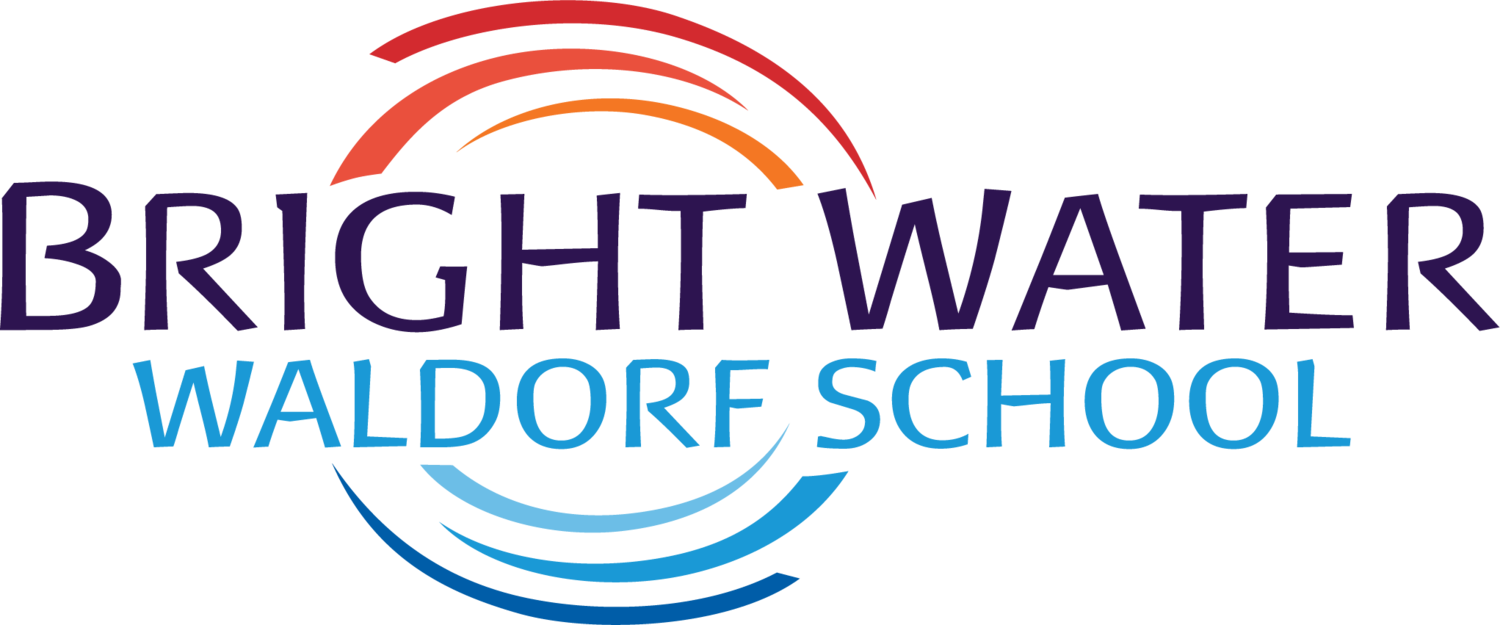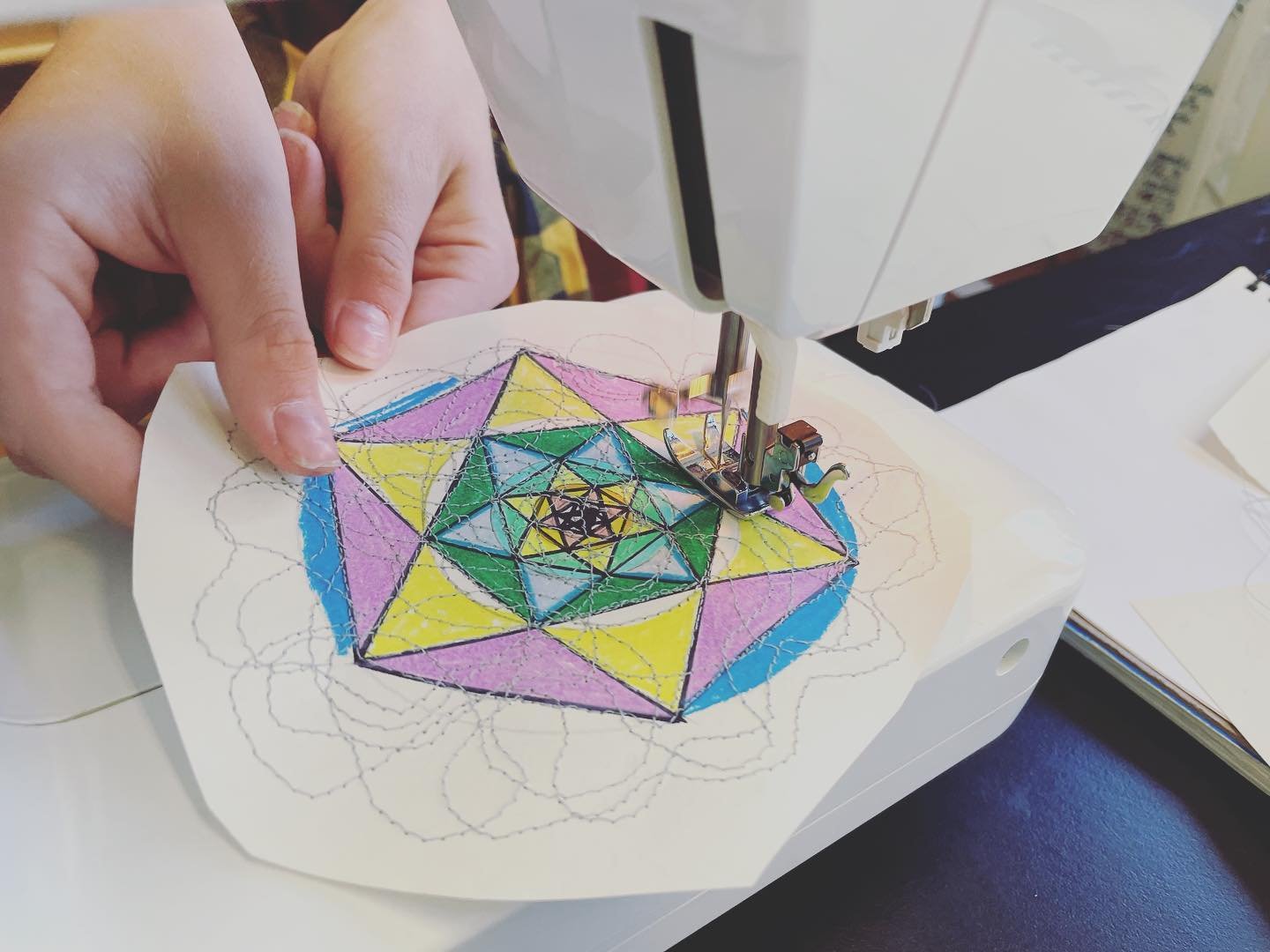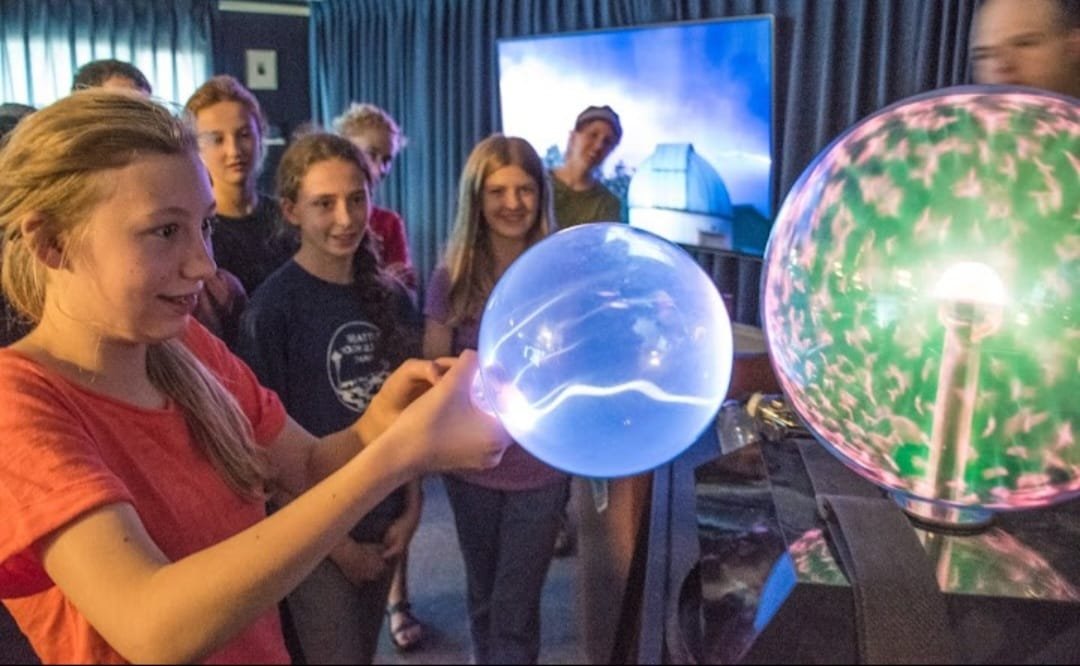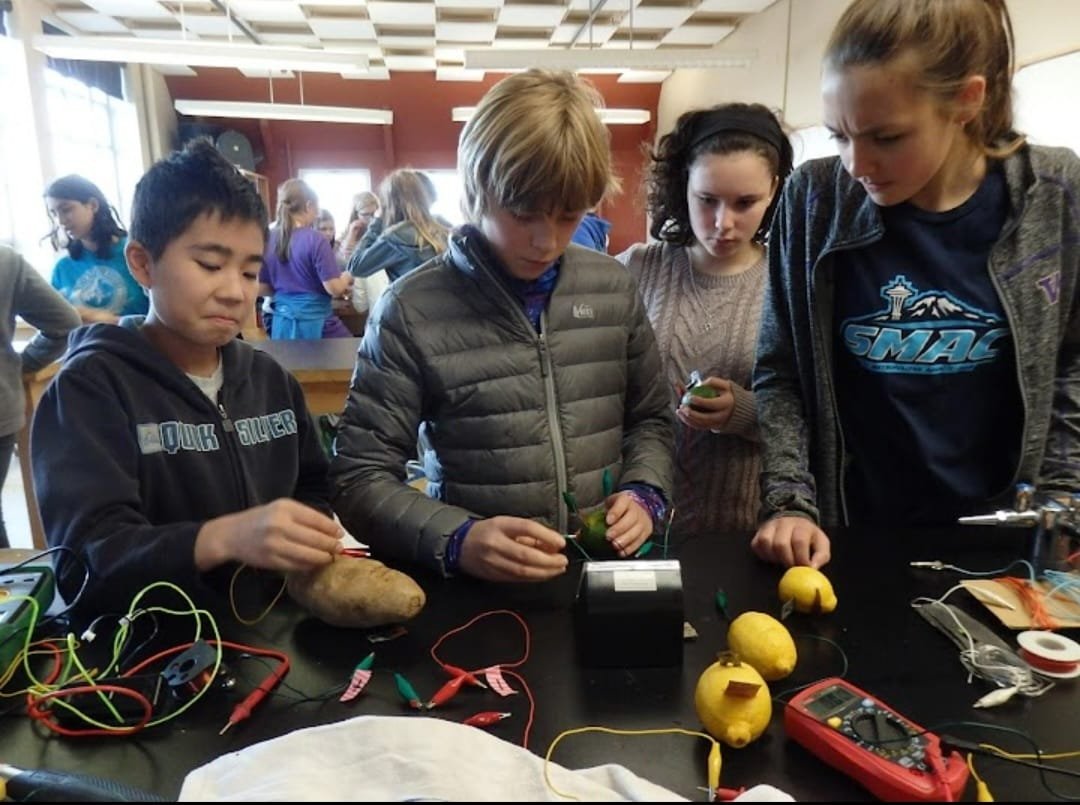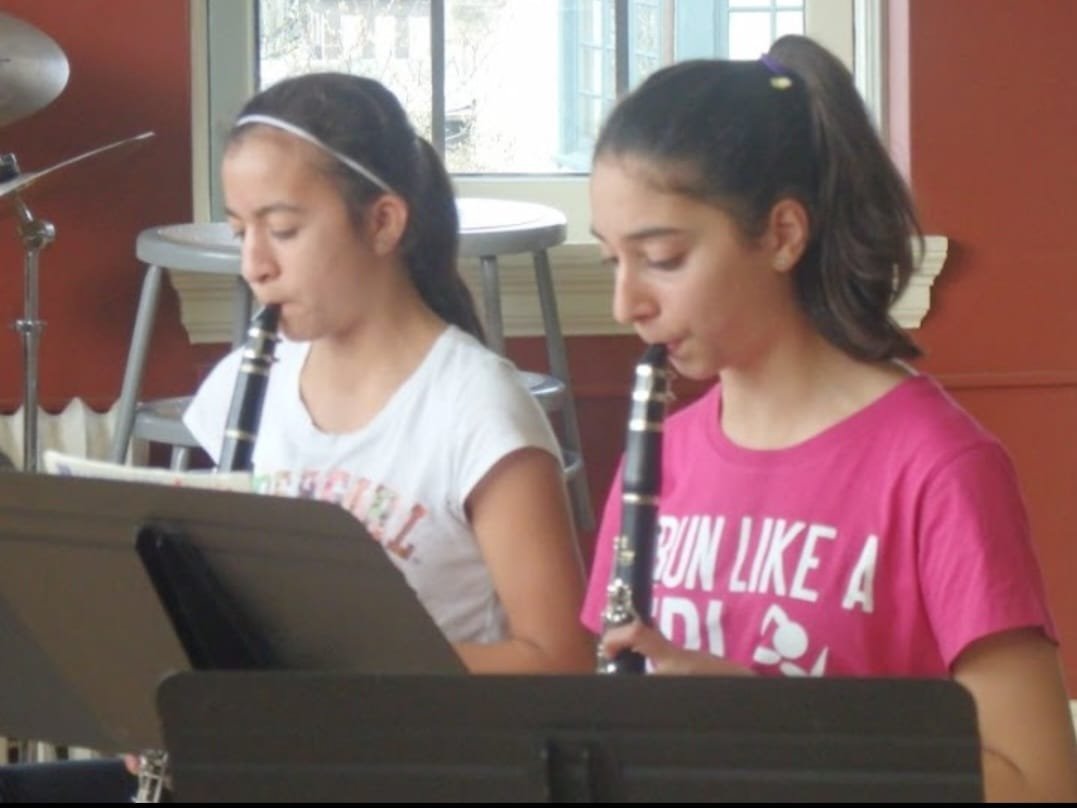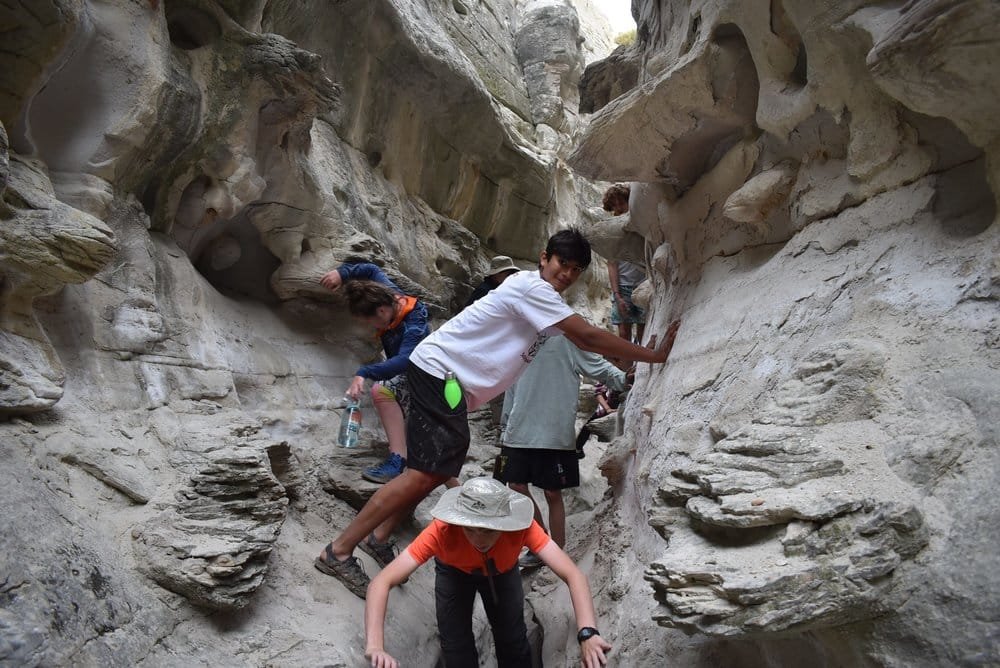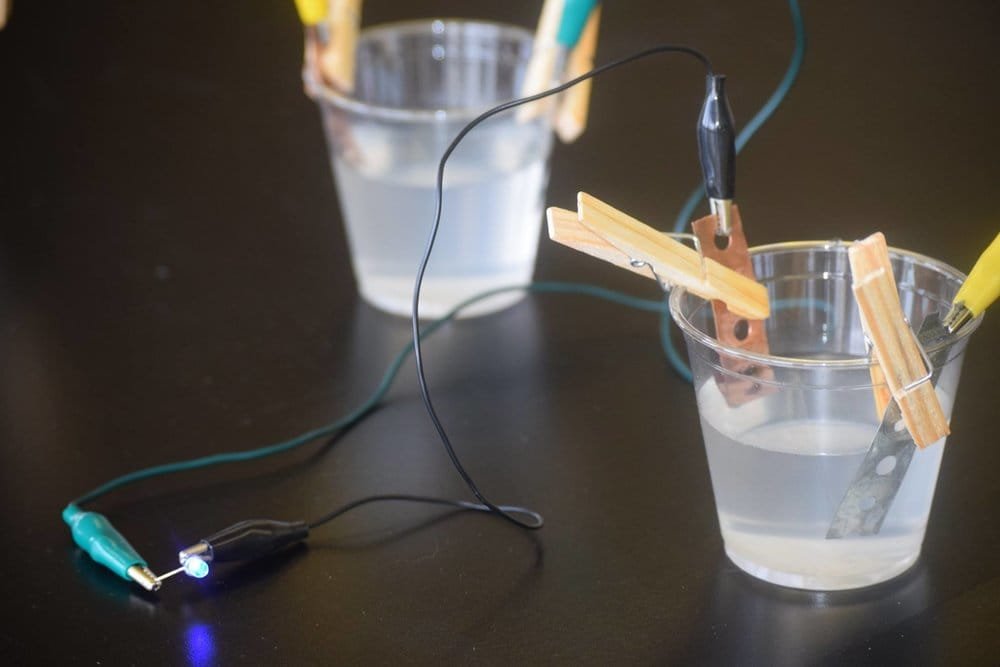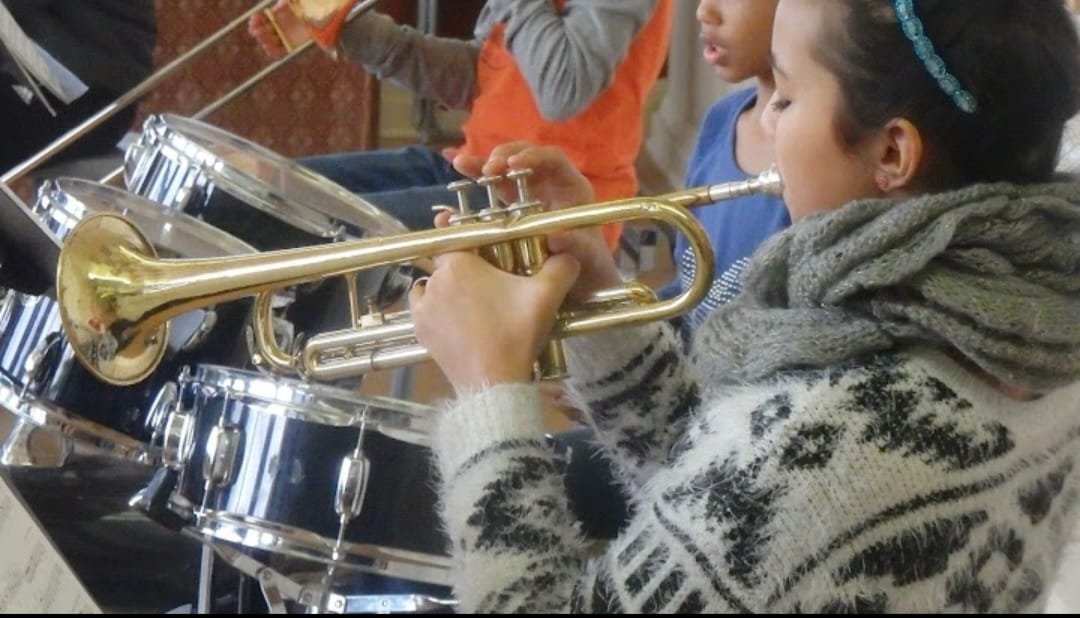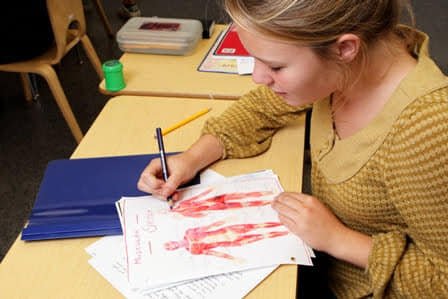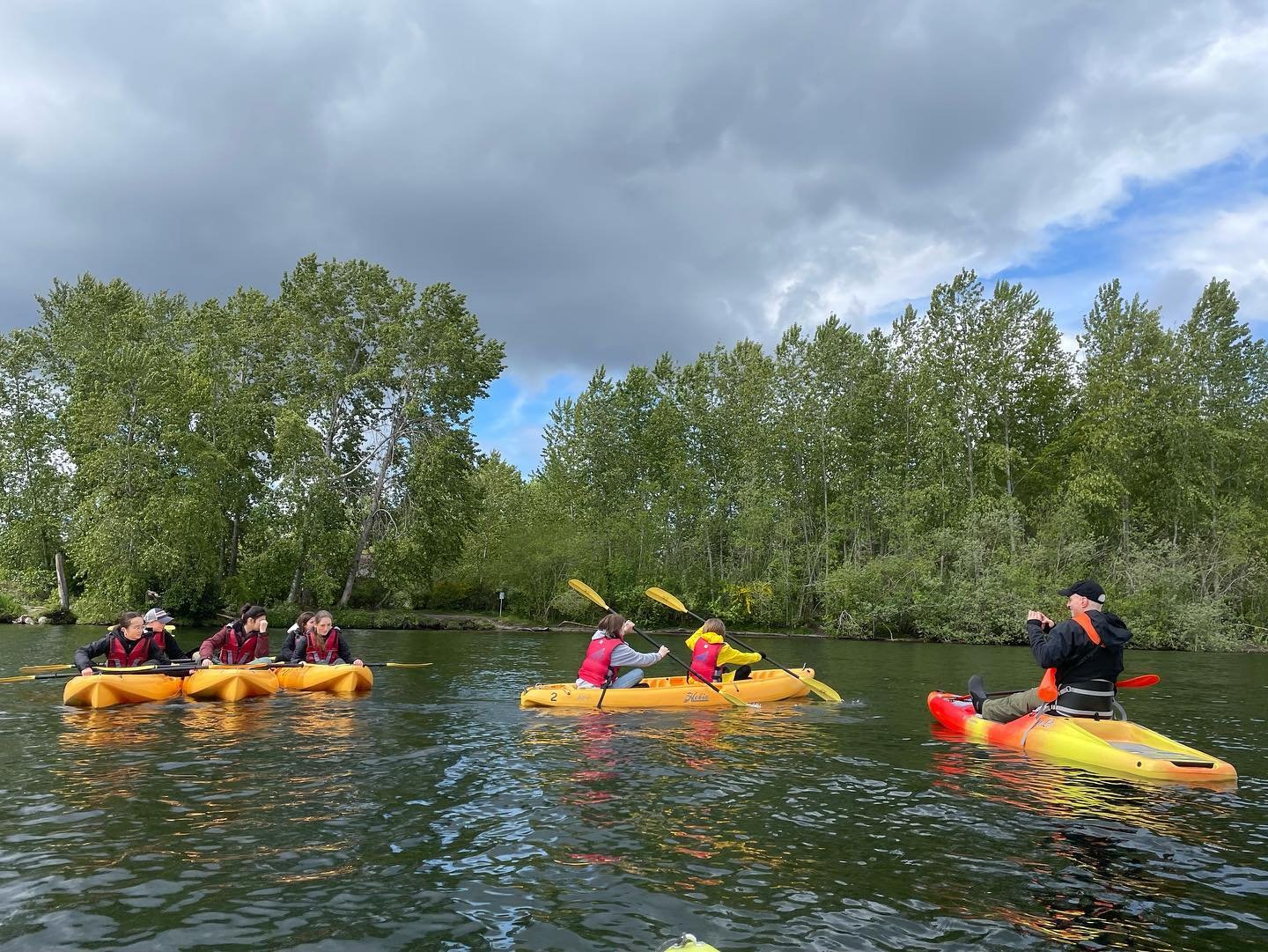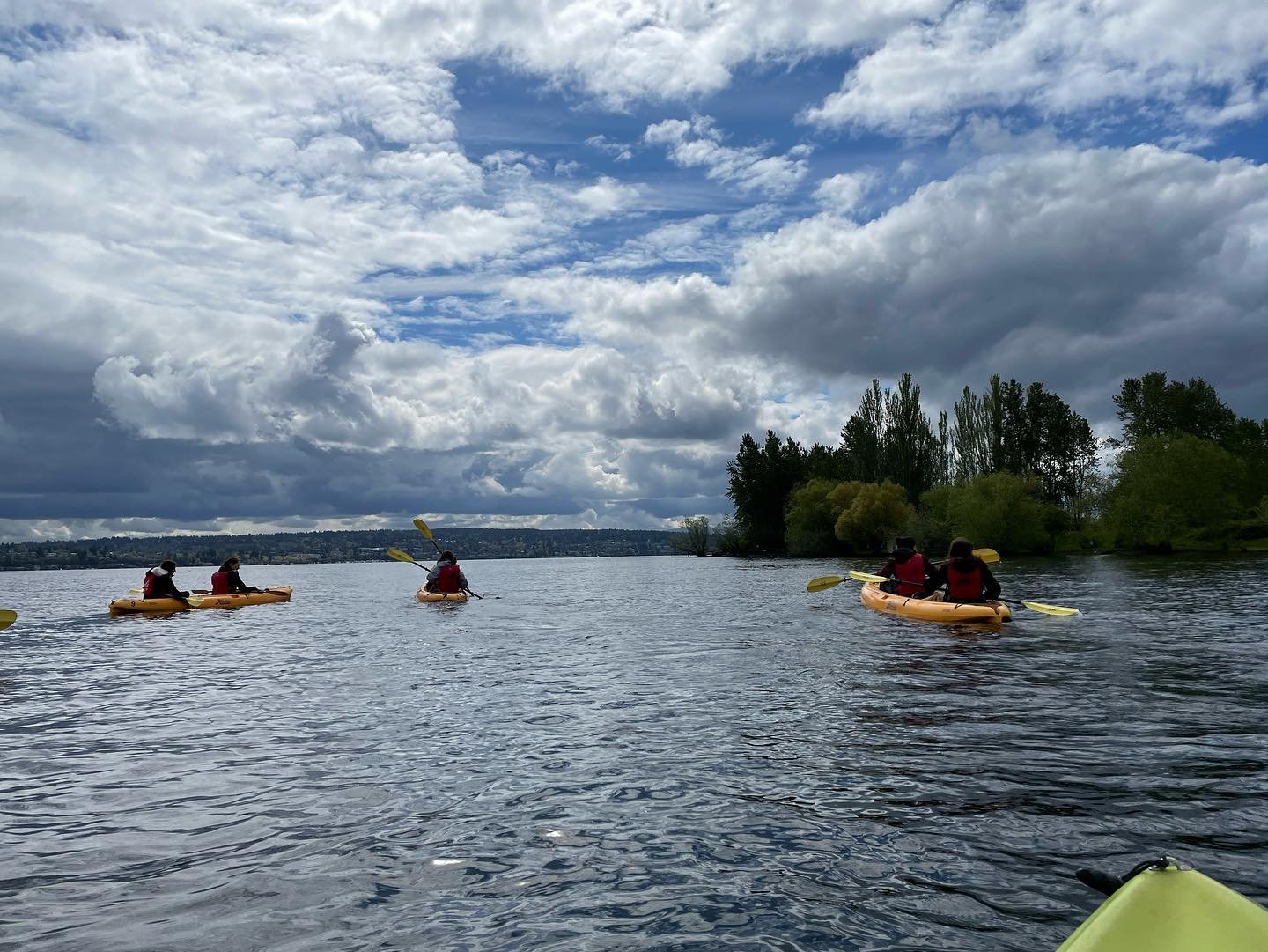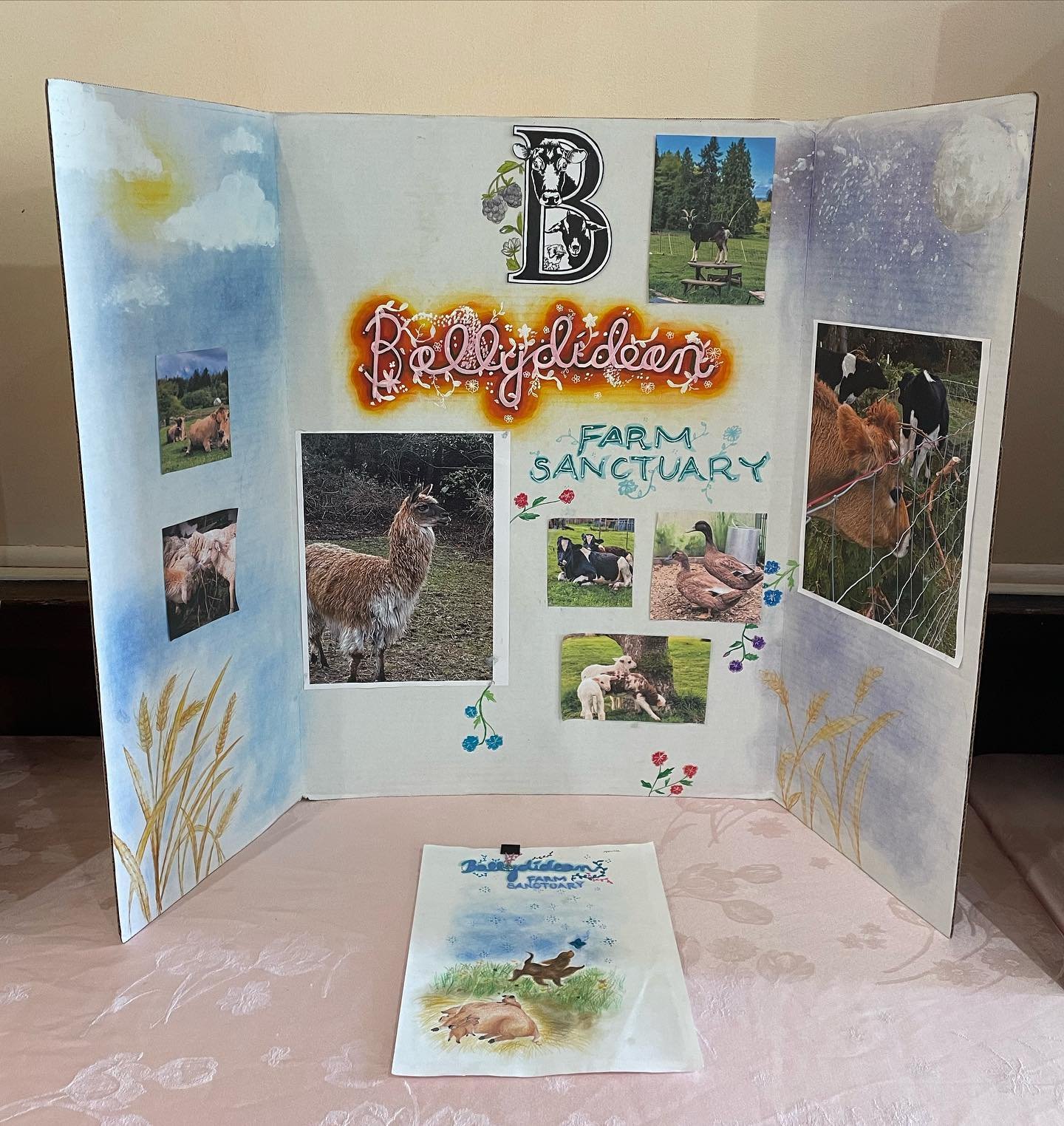Grade Eight
Grade Eight Learning Objectives
MAIN LESSON SKILLS
Analyzing Historical and Cultural Movements, Deepening Capacity for Judgment, Formalized Testing
LANGUAGE ARTS
Grammar and Composition, Creative Writing, Spelling, Reading, Report Writing, Original Business Writing, Note-Taking Skills, Researching, Newspaper Reporting, Drama, Epic-Dramatic Poetry, Literary Forms, Elements of Style, Shakespeare, Literature Analysis
LITERATURE & HISTORY
American History, Washington State History, Modern Events, Life and Work of Shakespeare, Folklore of the World, Industrial Revolution
MATHEMATICS
Number Bases, Pythagorean Theorem, Mensuration, Percentages and Growth, proportions, dimensional analysis, algebra.
WORLD GEOGRAPHY
Surveys of Landforms, Ocean Currents, Atmosphere, Climates
WORLD LANGUAGE
Japanese and Spanish (Conversational, Literature, Grammar and Vocabulary)
HANDWORK
Machine Sewing, Commercial Pattern Reading, Garment & Quilting Construction
PRACTICAL ARTS
Woodworking
MUSIC
Recorder, Singing, Orchestra, Band, Chorus (Elizabethan Song, Negro Spirituals)
PHYSICAL EDUCATION
Intramural team sports, movement class and cooperative movement games, Aikido
SCIENCES
Physics, Chemistry, Physiology, Geography
ART
Painting, Drawing, 3D Constructions (Platonic Solids), Clay Sculpture, and Other Media
The overarching theme in eighth grade is that students find their connection to the whole world and, through that process, come to know themselves. Students are encouraged to take greater responsibility for their learning and are given the opportunity for self-discovery through an “eighth grade project” focused on community service. Teachers strive to awaken the light of thinking as students cross the threshold from childhood to adolescence.
In Main Lesson, students explore the role of government in society and history of emerging nations with stories of the American, French, and Russian revolutions; and the workings of various economic systems. Particular attention is paid to the Industrial Age and the lives of workers in the late 19th and early 20th century. The students examine the history and principles of the United States with all the critical acumen they have gained from their history studies through the years.
Through becoming familiar with the physical, cultural, and economic aspects of the continents of Asia and Africa, in particular, students round off their geographic studies and come face-to-face with the challenges of the modern world.
Students read novels relating to main lesson work, biographies, short stories, and poetry, and discuss current events while at times learning the art of debating certain topics. Short stories, writing styles and moods are examined and, in poetry, the emphasis is on dramatic and lyric styles, ballads, simile, metaphor, and the use of adjectives. Work continues with speech, recitation, and drama, and the eighth grade play.
Grammar, punctuation, parts of speech, and paragraph writing is reviewed. Writing styles are expanded to include the formal independent research report with the eighth-grade project. Public speaking skills are polished as each student formally shares their discoveries and artistic endeavors from this project with the school community.
Building upon the mathematics and algebra introduced in seventh grade, the eighth- grade students are challenged in signed numbers, working in different number bases, adding, subtracting, multiplying, and dividing binomials. Solving equations, simplifying and evaluating expressions, and practical applications to algebra are practiced.
Quadratic equations are introduced, along with the distributive property, factoring, rules of exponents, and square roots. In geometry, students discover the theories behind the five Platonic Solids and then construct them in paper and clay. They work with three- dimensional figures to find perimeter, area, and volume. In Science, the class teacher continues to take a phenomenological approach. Experiment and discovery precede theoretical explanations.
The goal is to sharpen the students’ own powers of observation, which is the basic requirement for all advanced and meaningful work in the sciences. Eighth grade science blocks cover human anatomy. Eighth grade curriculum brings an in-depth study of the bones and muscles of the human being. The brain and nervous system are often presented through the study of the eye and ear. In organic chemistry, students discover the qualities, origins, and chemistry of carbohydrates, proteins, and lipids (fats and oils), with a focus on their significance in human nutrition.
Physics is a continuation of 6th and 7th grade studies in acoustics, optics, heat, electricity, and magnetism. Eighth graders work with hydrodynamics and aerodynamics. In studying Meteorology, students name clouds, observe weather changes, fronts, wind, humidity, pressure, and storms in the earth's atmosphere as they navigate their own "internal weather” or mood. Students review the dynamics of heating and cooling and apply these concepts to understand the sun as the power behind earth's climate and water cycle. Students finish the study with an understanding of the global impact of current weather conditions and climate. In woodwork, students build boxes with dove-tail joints and in handwork the students master the sewing machine.
Bright Water Waldorf School eighth graders graduate with a deep sense of who they are, a solid foundation of academic skills, and a world of relationships that will follow them through life.
Subject Classes
Spanish or Japanese
Band or Strings ensemble
Movement
Aikido
Woodwork
Handwork
Environmental Education
Curriculum Trip
The 8th grade traditionally takes a week-long trip that includes a wilderness experience and a cultural component.
